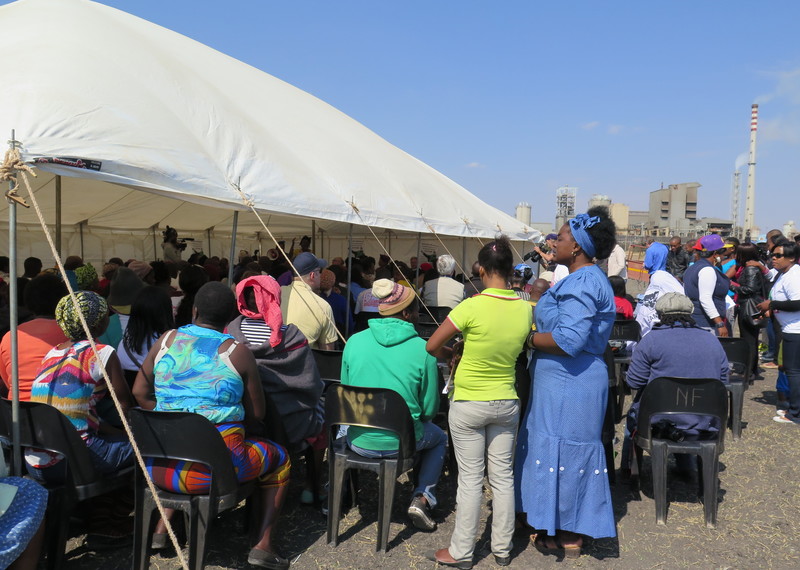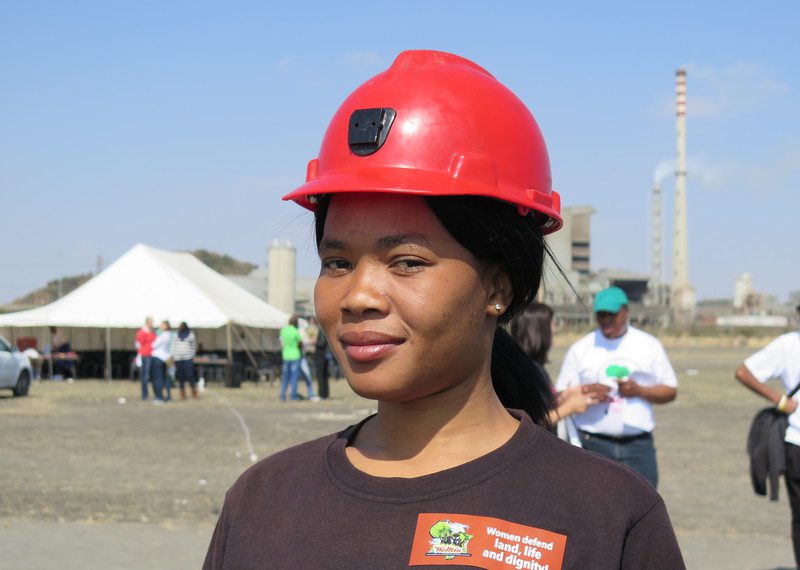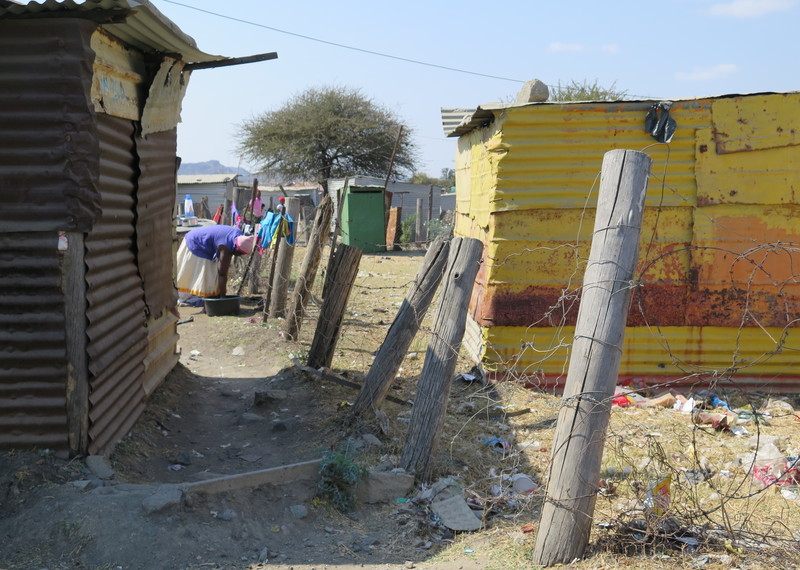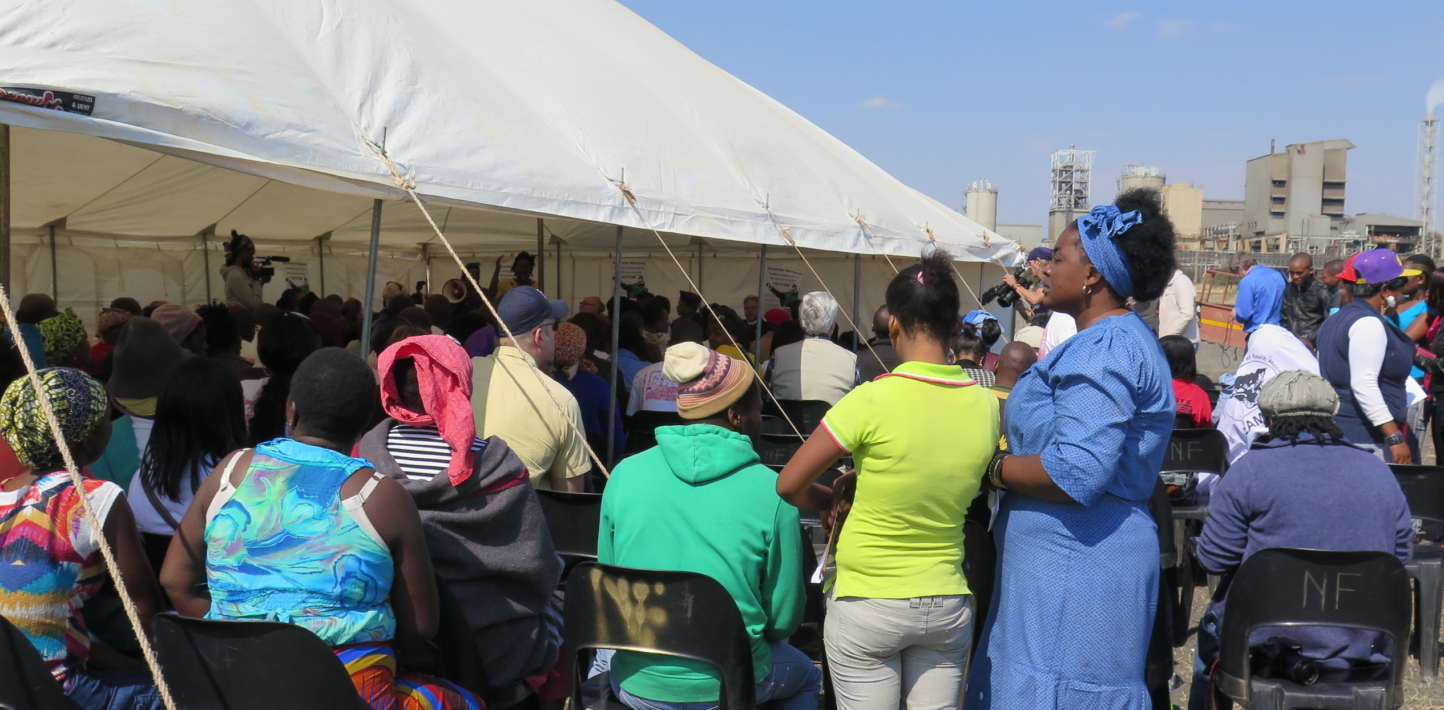This week in Marikana, South Africa, women residents gathered to mark the second anniversary of police killings of 34 miners during a strike. Clare Fermont, Amnesty’s Southern Africa Regional Content Manager, attended the gathering and describes the lingering injustice they face.
Here I was again at Marikana, the place where two years ago South African police shot dead 34 platinum miners who worked for Lonmin. The killings, so reminiscent of the apartheid era, sent political shockwaves across South Africa and the world.
I was attending one of a series of events being held in South Africa to mark the grim anniversary. The event was organized last Tuesday (12 August) by Sikhala Sonke, a women’s organization formed in Nkaneng informal settlement near the mine in order to promote peace and improve living conditions for miners and their families.

The women had invited many civic society organizations, prominent individuals and media to listen to their stories of continuing pain and sense of injustice, and to “inspect” Nkaneng and one of the koppies (hills) where the killings took place.
One of the factors behind the 2012 strike had been the appalling conditions in which the miners were forced to live because of broken promises by Lonmin and the government to improve housing and services, and because of crushingly low pay.
Yuvon Yonela, a young woman who lives in Nkaneng, told me:
“We’re doing this because our brothers and fathers were killed and we still have no justice, just tears.
“We want to show people that we still have no water. We still have no roads. We still have no sanitation. We still have no jobs. We still can’t sleep at night because of the shootings and the failure of the police to protect us.
“We also want to show you how strong our community is, despite all our suffering and problems.”

As the strange cavalcade of invited outsiders snaked its way along the dusty, litter-strewn alleyways of Nkaneng, women residents described their community and their lives.
Here was a shallow latrine, long-awaited and newly dug by the municipality, that would be full and smelling in a matter of days. Here were the shops that closed during the recent five-month strike by platinum workers. Here was the spot beyond which ambulances would not pass.
As we walked, a few hundred miles away the Deputy President of South Africa, Cyril Ramaphosa, was giving his second and last day of evidence at the Farlam Commission of Inquiry into the Marikana tragedy. At the time of the killings he had been a non-executive member of Lonmin’s board.

At the Commission he was reminded of Lonmin’s promise to build 5,500 houses for the miners between 2006-2011. He was asked how many were actually built. Three, he said.
Many more upsetting stories will be heard on 16 August as South Africa reflects on one of the darkest days in its recent history.
Read more:
South Africa: Full accountability for the Marikana killings urgently needed (News story, 16 August 2014)


